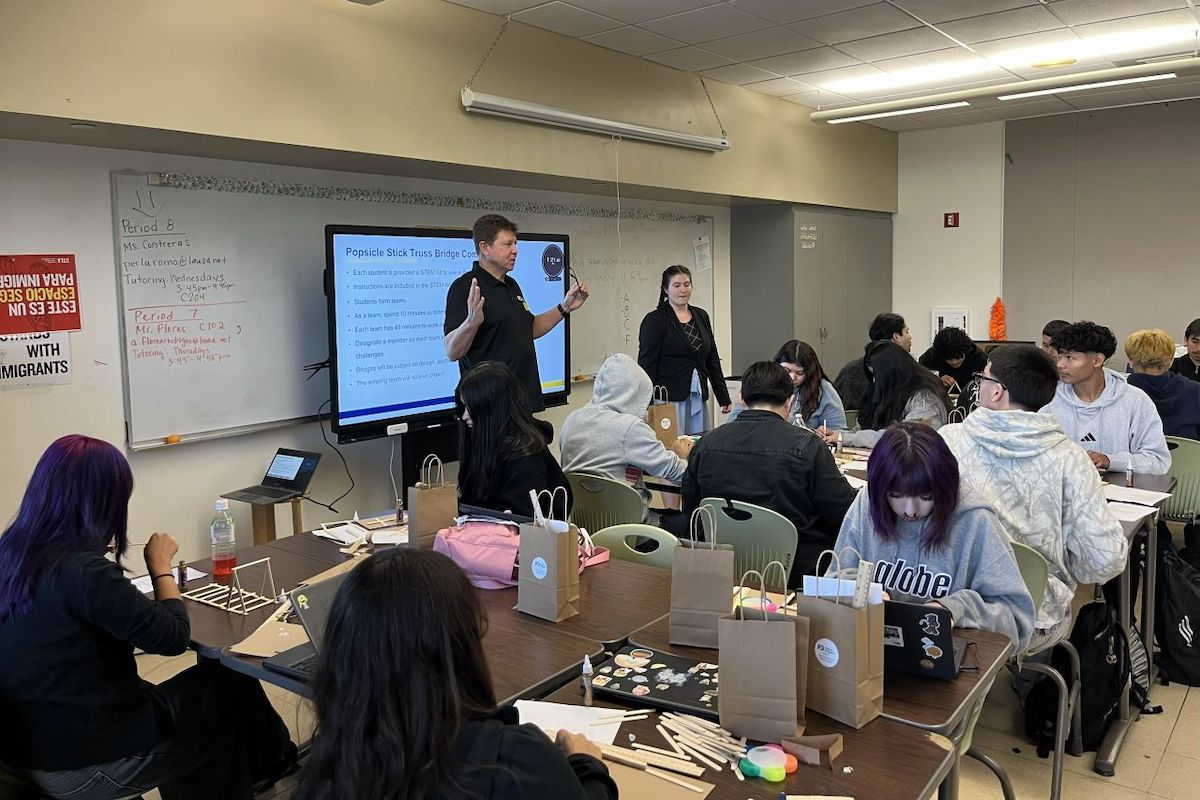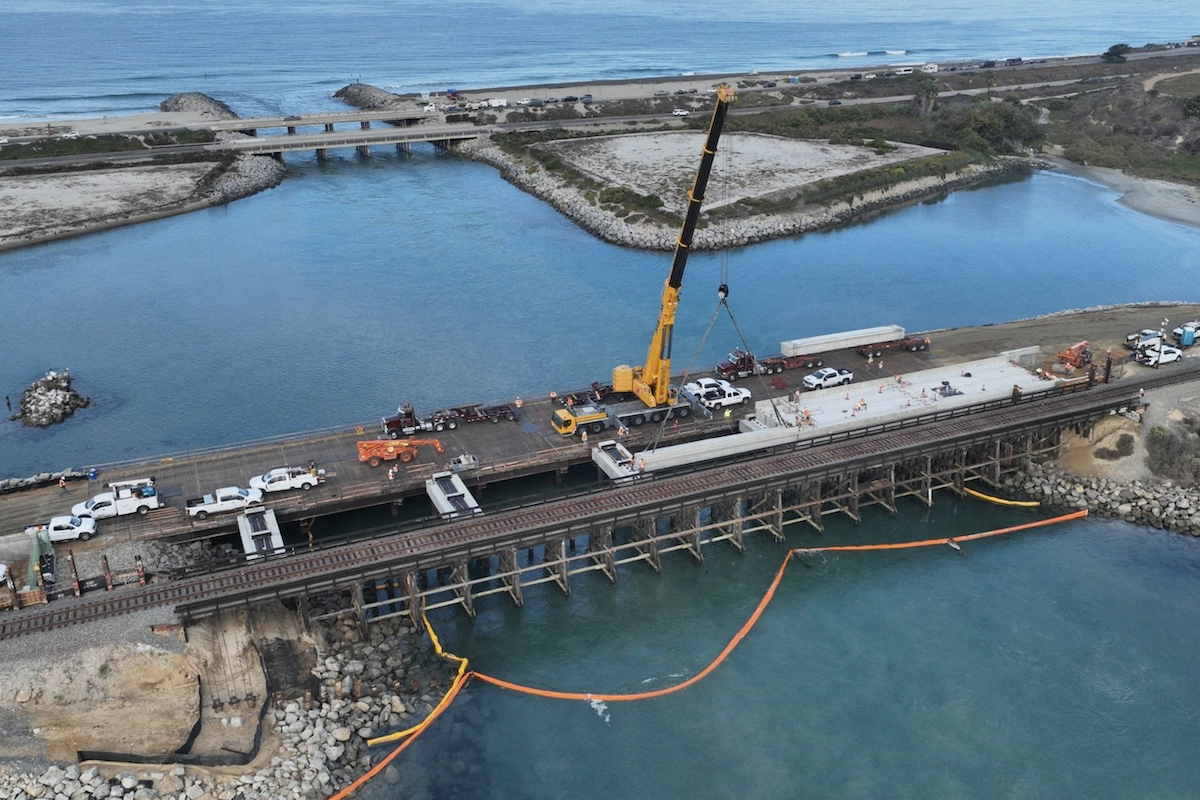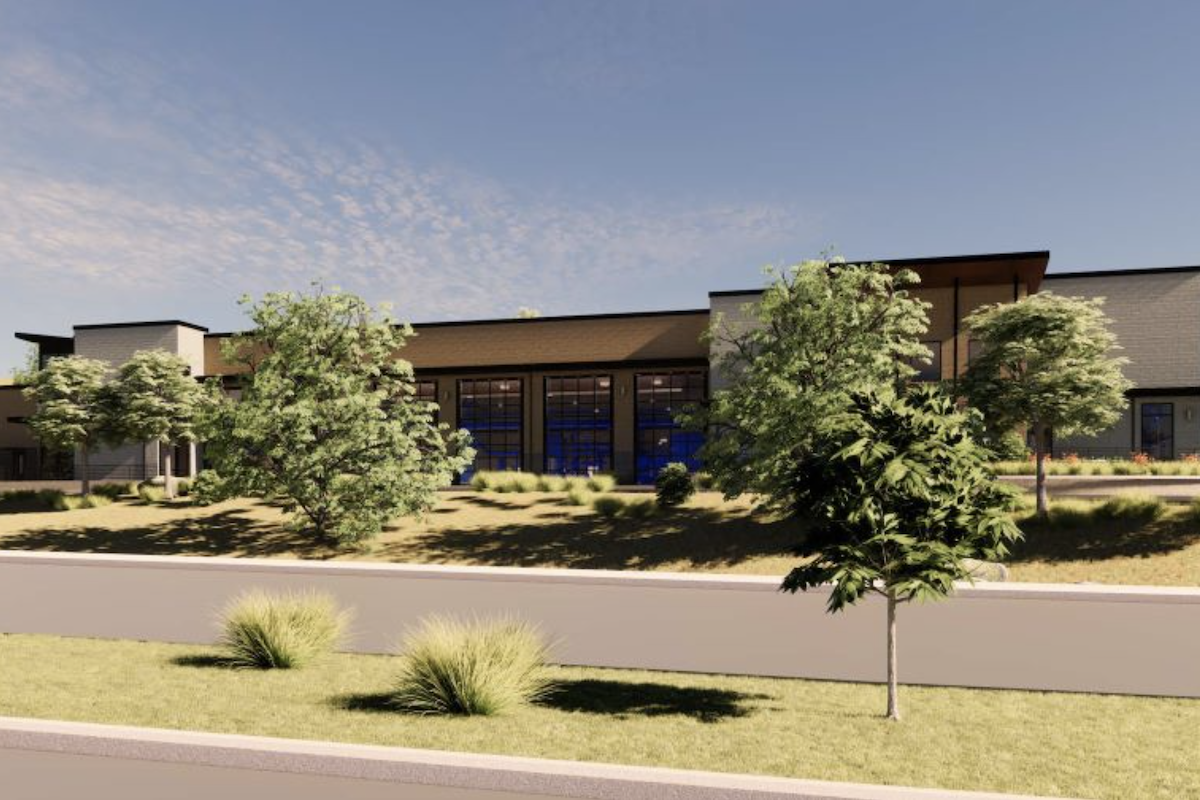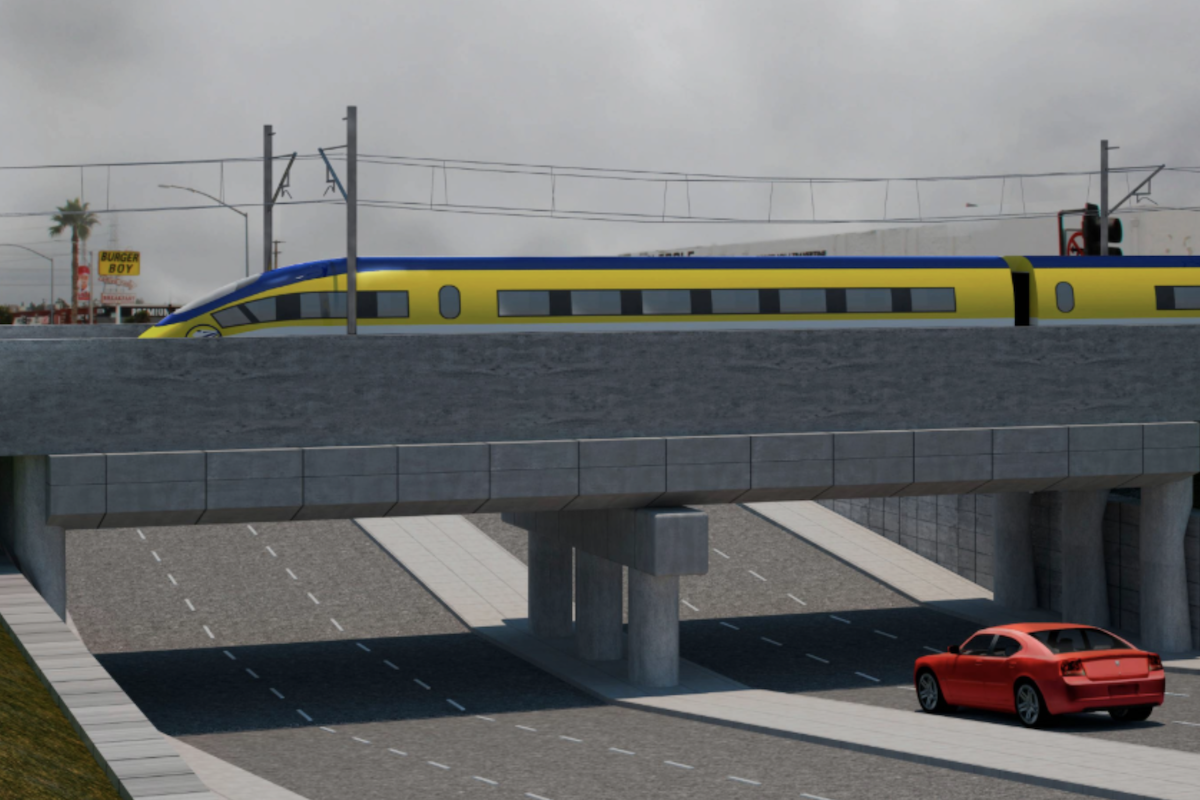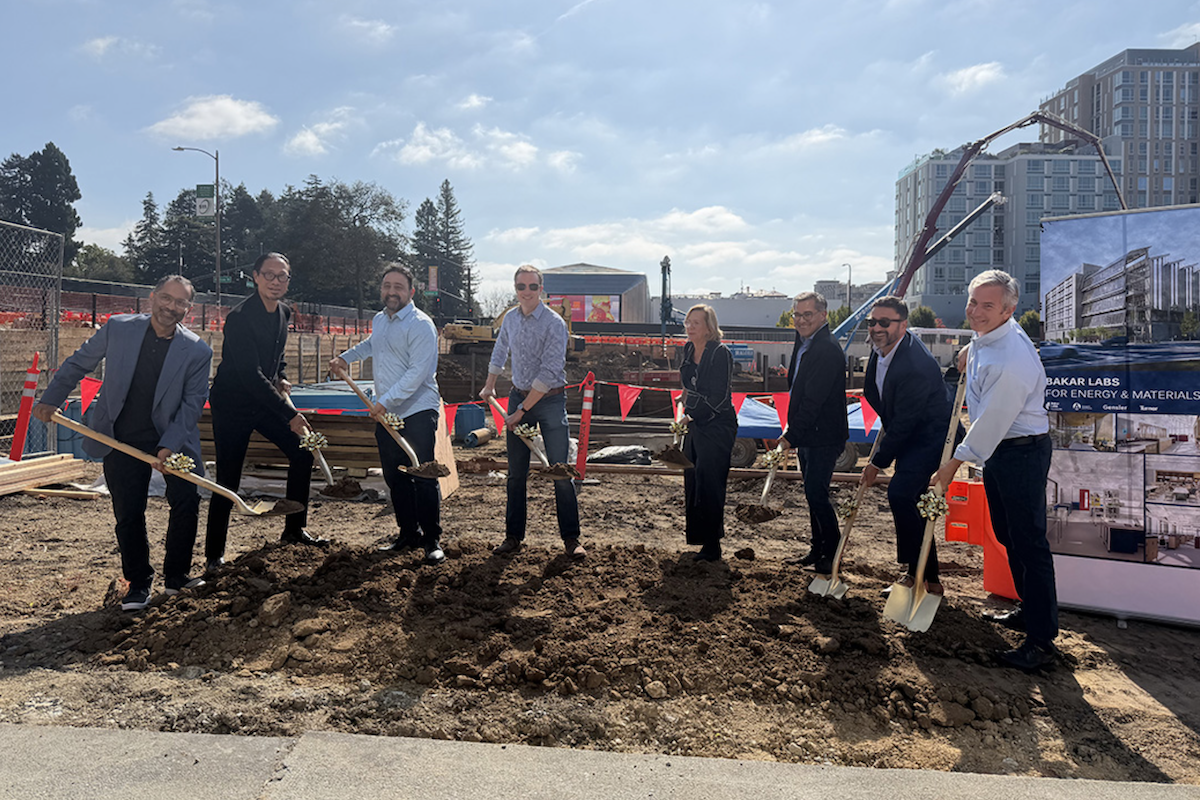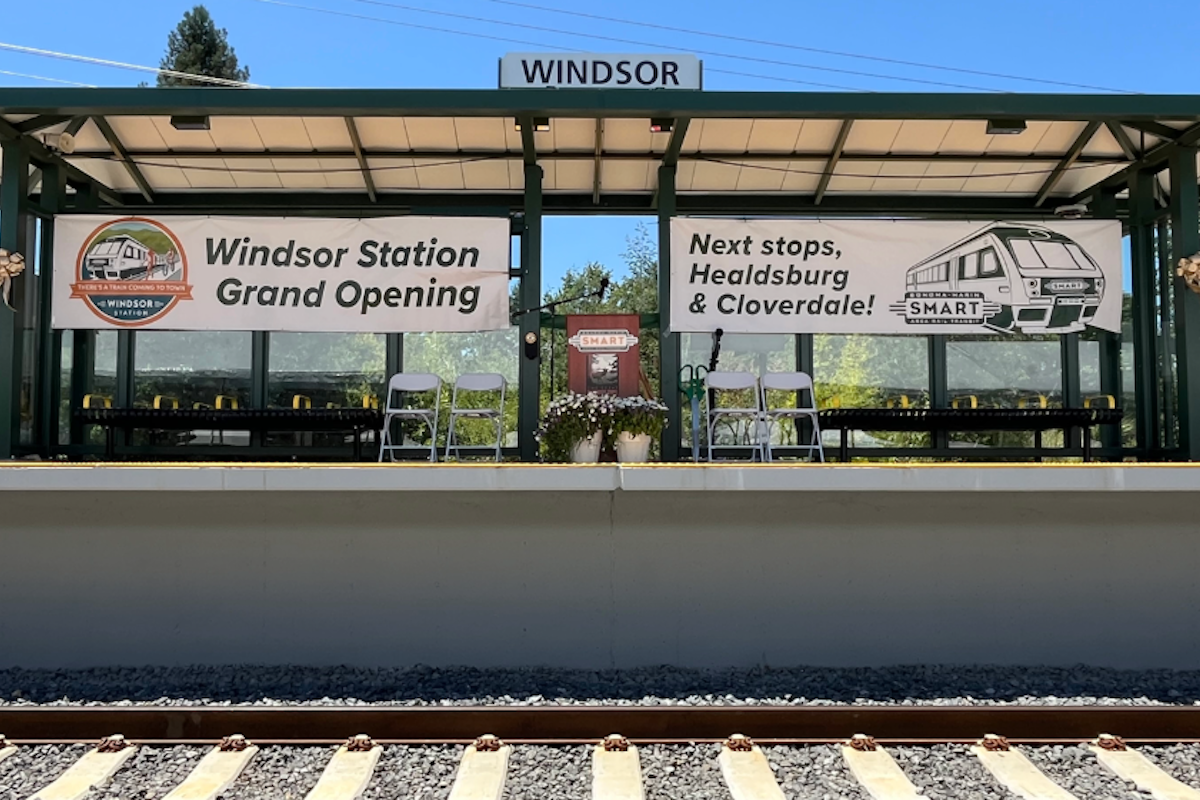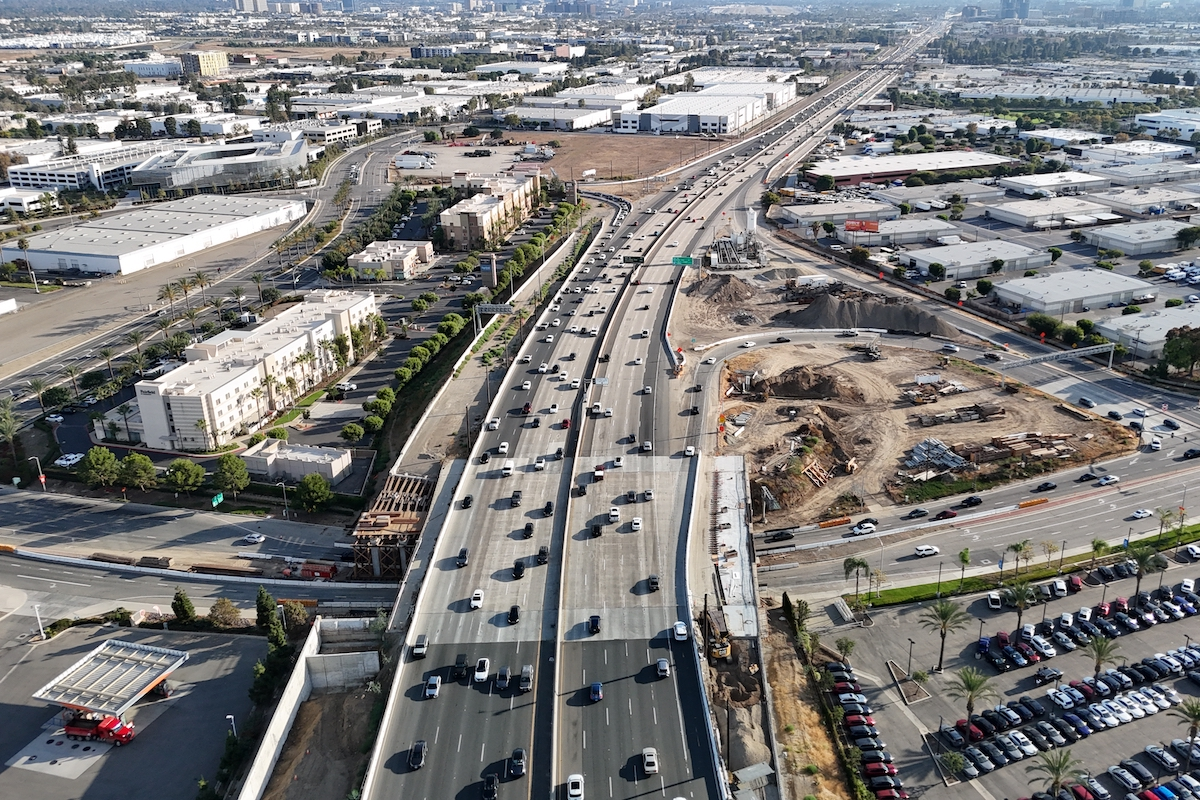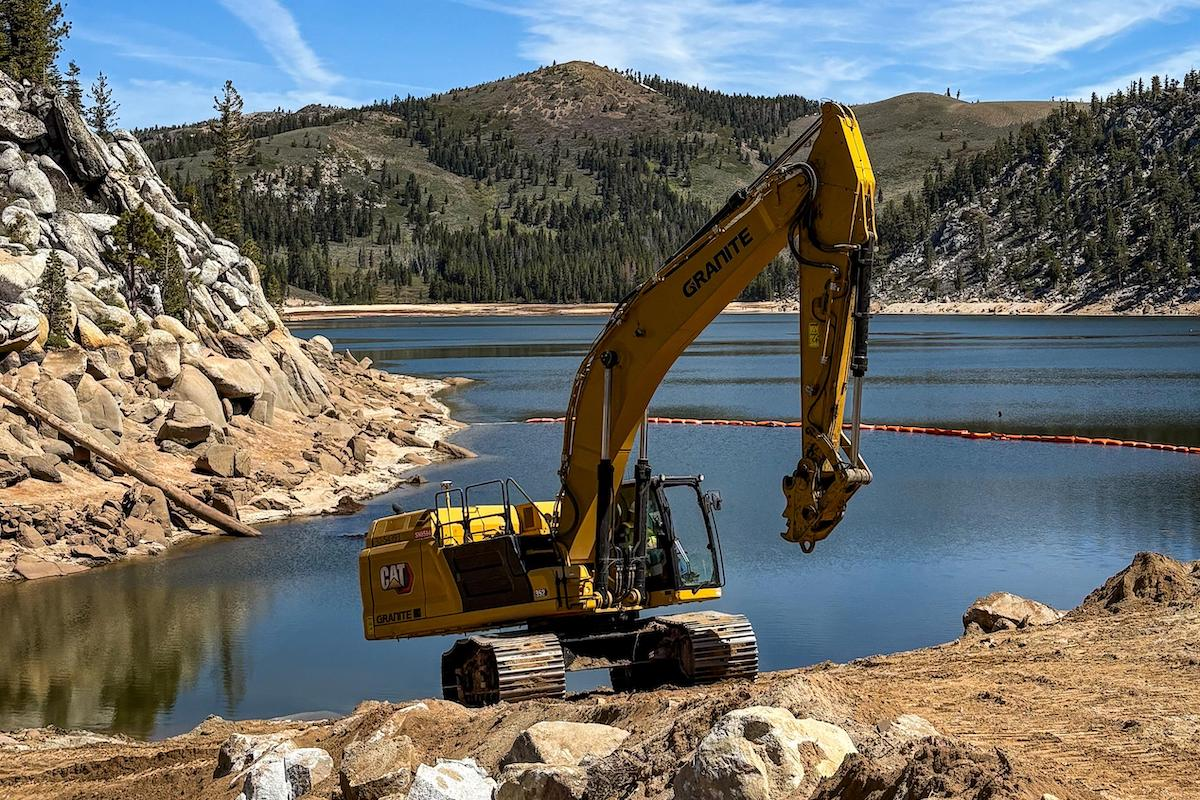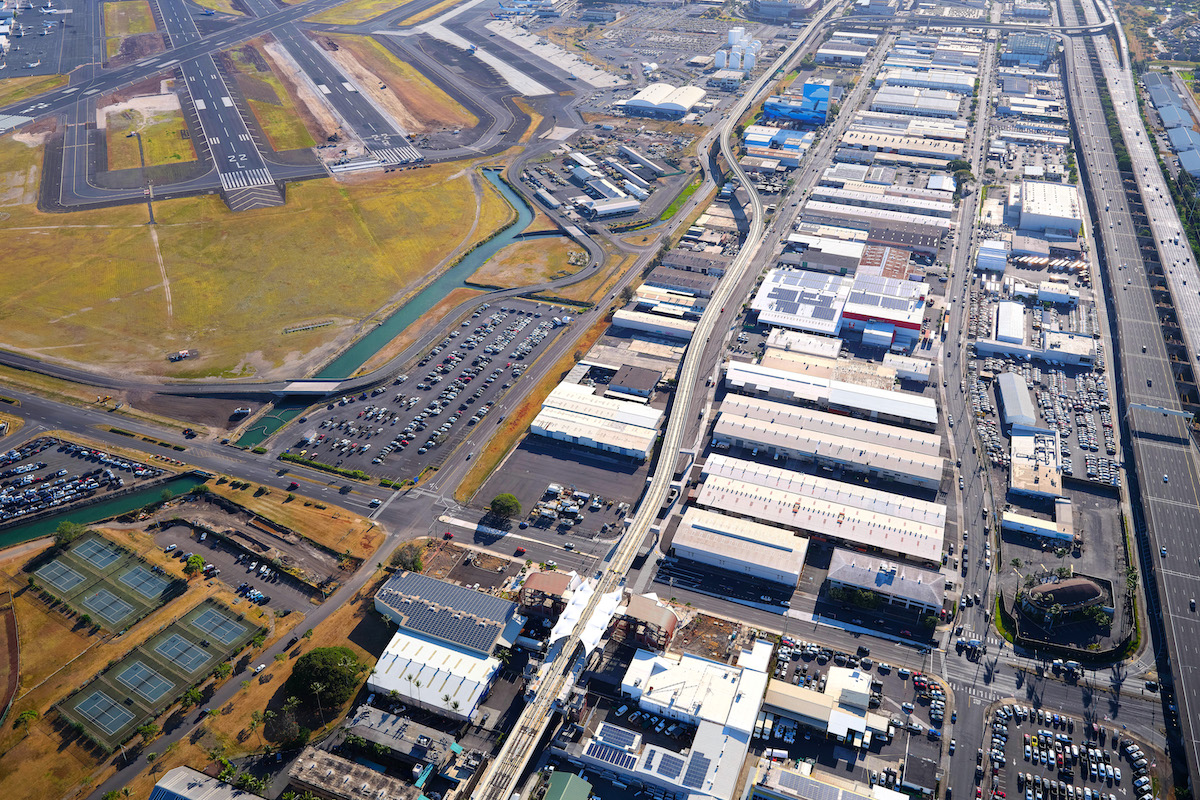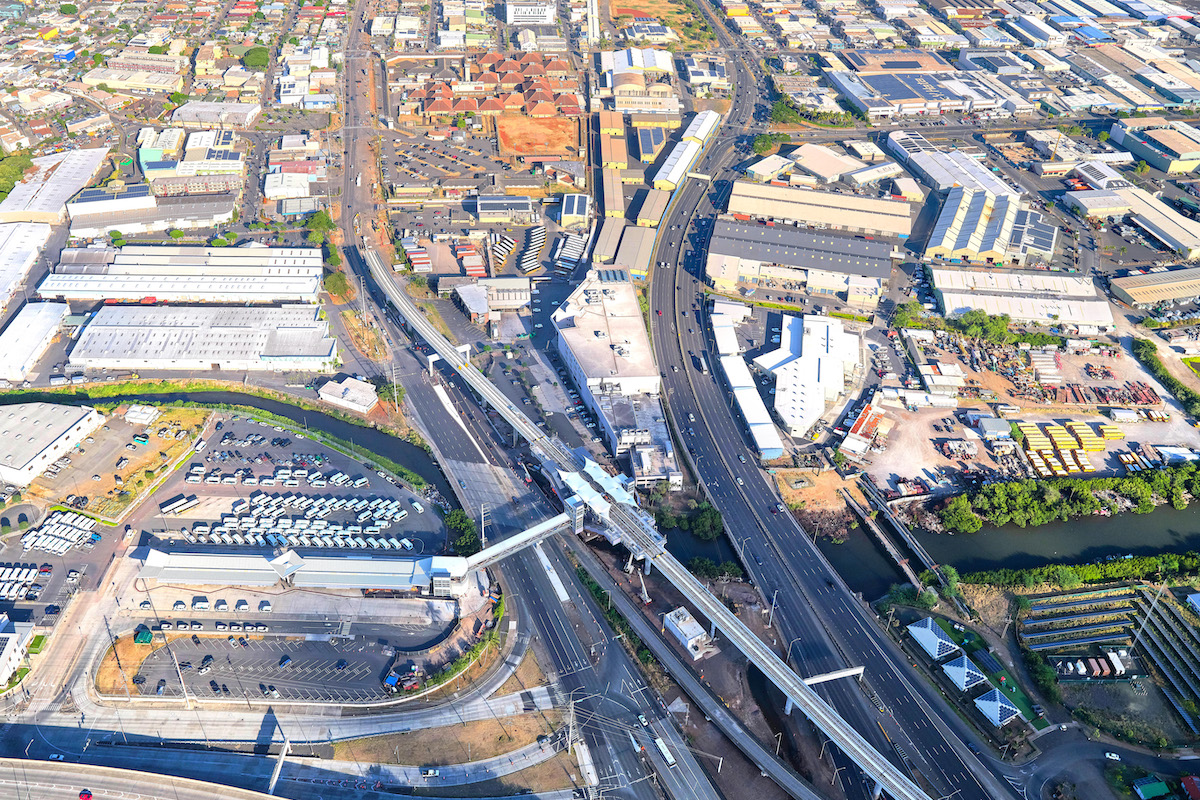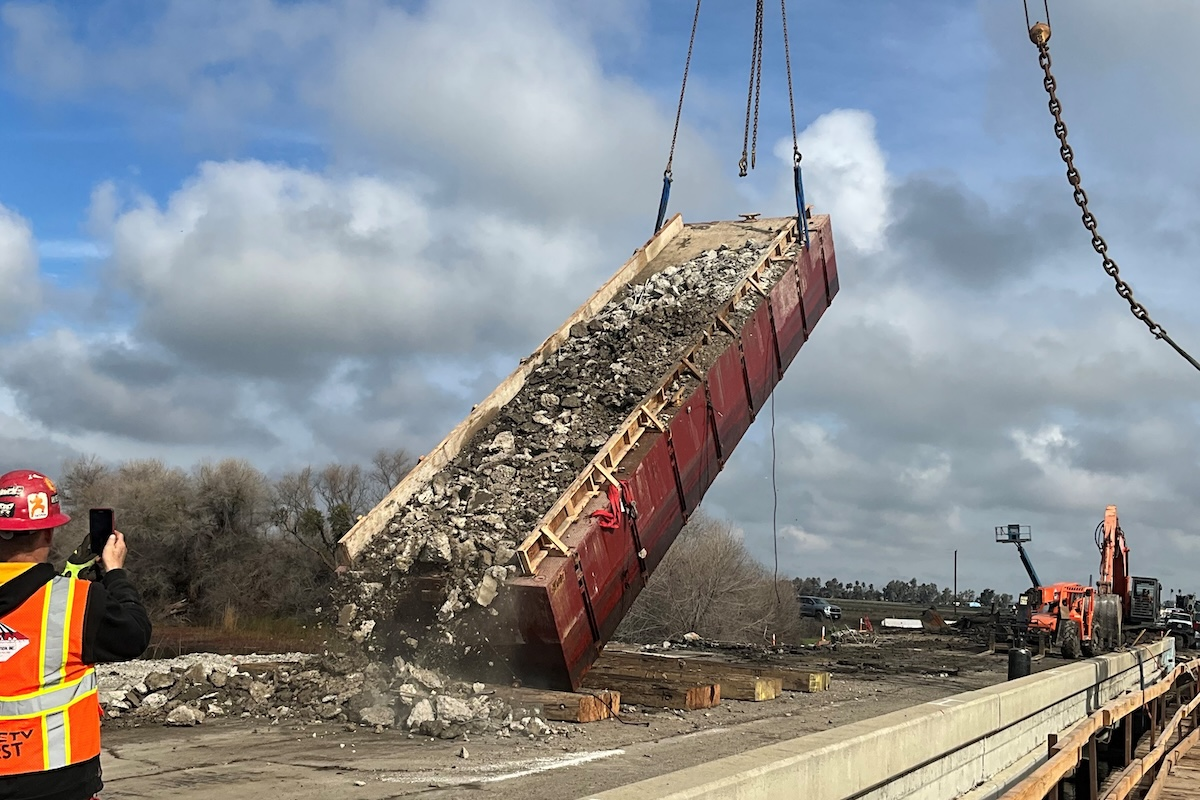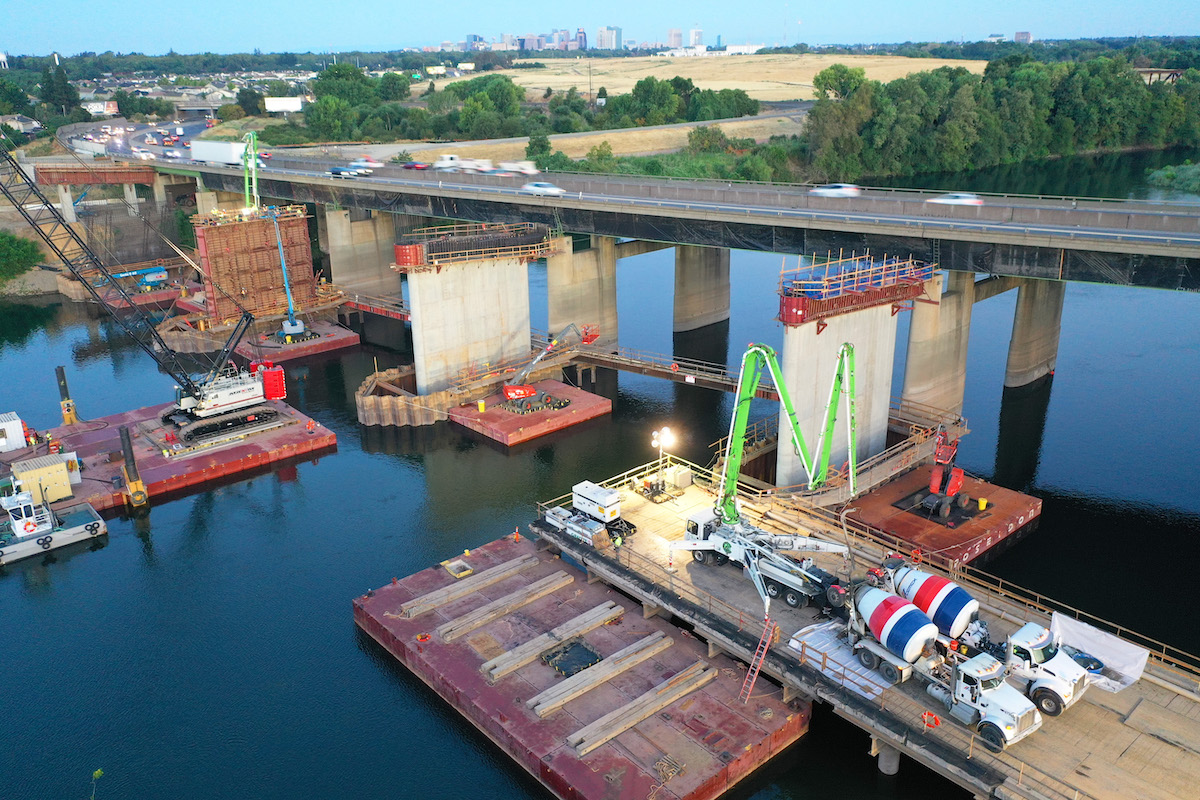“Sustainability is important out here,” says Mike Bauman, President and Co-Founder of Bauman Landscape & Construction in San Francisco. “Volumetric mixers are great. There is no waste.”
Cement, a key element in concrete, contributes 8 percent of the global carbon dioxide emissions, with every pound of concrete releasing 0.93 pounds of the pollutant, according to “Cement and Concrete: The Environmental Impact,” a report by Princeton University’s Princeton Student Climate Initiative.
Additional environmental issues associated with concrete include the amount of water needed to wash out a ready-mix concrete truck, wasted concrete due to producing more than is actually needed, and the time drum trucks are on the road. Volumetric mixers address all of these concerns.
“Concrete has been around for hundreds of years, but with everything going on in the world, we are trying to find ways to do things smarter, faster, and cleaner,” says Mark Rinehart, Vice President of Cemen Tech, maker of volumetric mixers for the past 54 years. “It has become a focus in the industry on how we can do things better in the concrete space – have less emissions, use less water, create less waste. It’s a hot topic.”

| Your local Gomaco dealer |
|---|
| Terry Equipment |
Contractors buy the cement, additives and other materials from the source and can store in bulk at their storage yard. The volumetric truck holds all of the ingredients to make concrete in separate containers. The contractor requests the mix, and in 10 to 15 seconds, fresh concrete is produced.
“Our technology allows contractors to have more flexibility to produce concrete themselves, without relying on anyone else,” Rinehart reports. “We can make concrete more sustainable and reduce the material waste of producing concrete. We give contractors the ability to control their own concrete.”
New technologies allow contractors to decrease the amount of Portland cement needed by 10 percent, reducing the use of the most expensive component required to make concrete.
Additionally, there is no waste. With a volumetric mixer, the contractor pours what is needed and no additional concrete, eliminating the waste that often occurs when a ready-mix truck is sent out with too much concrete for that job. The extra gets wasted. “The truck can start and stop at any time,” Rinehart says.
Volumetric mixers also require less water to wash out. Cemen Tech estimates it takes between eight and 10 gallons of water to wash out its mix trucks, compared with 200 gallons of water needed with a traditional drum mixer.
A volumetric mixer also enables contractors to create specific mixes, with different PSIs. An onboard computer contains all of the mix designs. The machine then automatically delivers the requested components to be mixed together. “I am able to mix different designs, so it saves time,” Bauman says.
For instance, handicap ramps in San Francisco are a dark contrasting color and bus lanes are a bright red. When Bauman goes out to pour both the ramp and the sidewalk or two different street lanes, the company mixes the correct amount for each portion of the job, rather than ordering two separate concrete loads with different colors from a ready-mix plant. “Less loads save us in fuel costs,” Bauman says.
Rinehart reports that two volumetric trucks on site could pour as much in one day as 100 drum trucks. This keeps concrete drum trucks off of the roads, which reduces fuel use and vehicle emissions.
“Sustainability is a huge topic, one we are researching how we can help,” Rinehart says. “We want to take it to the next level. We are excited about new add mixtures and supplemental materials.”
“We are basically an infrastructure contractor, doing public works and street repairs,” Bauman says.
The company continues to prize family values and high integrity, and maintains a high standard of quality on every job. Sustainability remains a priority for Bauman Landscape. It reduces waste and emissions and repurposes removed concrete.
“In the next two to five years, we will see more and more recycling of concrete, because of the shortage of aggregate,” Bauman says. “You cannot take it out of the river anymore. You have to quarry the rock, and the quarries are running out of rock. A lot of the rock in the Bay Area is barged in from British Columbia, Canada. Costs are going up 15 to 20 percent per year. The more you can reuse, the better.”
Bauman Landscape regularly takes existing concrete to the company’s yard, processes and crushes it, sizes it, and reuses it – saving money and the environment. On large jobs, the concrete often is reused on that specific project, but on smaller jobs, the concrete might be recycled and used on different projects. Bauman Landscape also will take clean concrete from a landfill and recycle it or from an individual.
“We are always looking for better ways to be more sustainable,” Bauman says.
















